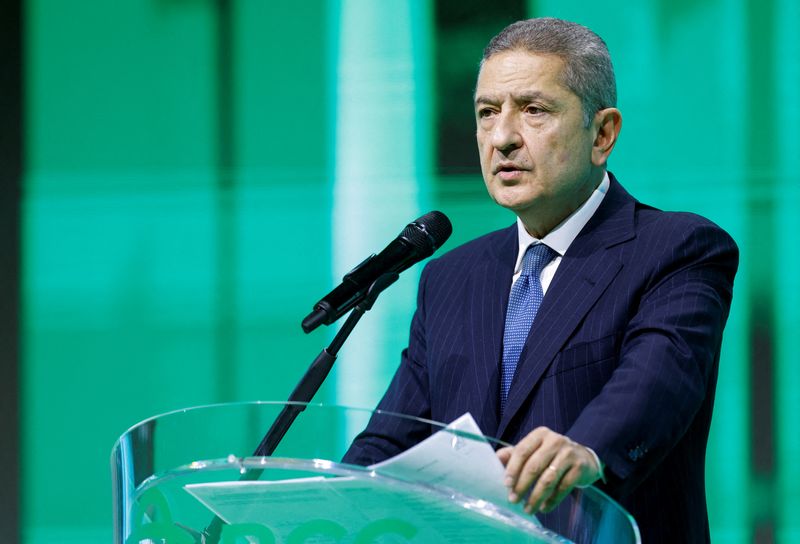By Giuseppe Fonte
ROME (Reuters) – The European Union needs to set up a common spending programme to fund strategic investments that are indispensable to boost productivity and keep pace with the United States, European Central Bank policymaker Fabio Panetta said on Tuesday.
A continent-wide “productivity compact” could envisage the issuance of common debt worth 800 billion euros ($841.04 billion) a year for six years through 2030, Panetta said at a speech for the 20th Spain-Italy Dialogue Forum in Barcelona.
“The increase in liabilities would be small at central level and used exclusively to boost the productivity of the European economy,” he said.
Such a scheme “would limit the investment expenditure needs of member states, which could thus reduce their public debt more quickly.”
Panetta’s call follows a 400-page report issued in September by former ECB President Mario Draghi, a predecessor of Panetta’s at the head of the Bank of Italy, which also called for EU investments of 750-800 billion euros per year.
Draghi’s call for joint borrowing was rejected by Germany, the bloc’s largest economy.
The 800-billion-euro programme envisaged by Panetta would amount to 6% of the EU’s gross domestic product (GDP).
Taking into account bonds for the post-COVID 19 Recovery Fund and other programmes managed by the European Commission, total resources would reach 10% of GDP, Panetta said.
“The creation of a liquid secondary market would make it possible to reduce EU bond yields, which are currently penalized by the low liquidity of trading and the absence of derivative instruments to hedge market risks,” he said.
Panetta noted that underlying the EU’s low productivity is an insufficient capacity for innovation.
“In the last decade, investment in research and development by European companies has been about 60% that of US companies, and the gap has been widening over time,” he said.
The EU has for years lagged behind U.S. growth figures.
In economic forecasts issued last month, the European Commission said it expected this year’s GDP to expand by 0.9% in the EU, versus 2.7% in the U.S.
The ECB policymaker added that strategic European projects were needed in high-growth fields such as emerging technologies.
“Only by joining forces can we improve the functioning of the EU’s single market, exploit economies of scale, avoid duplication resulting from overlapping national initiatives,” Panetta said.
($1 = 0.9512 euros)

